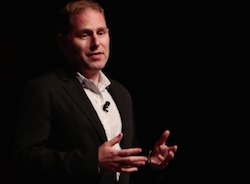Medical education today requires students to assimilate lots of facts and amass an incredible fund of knowledge quickly. As medical science advances, more material must be mastered. Medical students must be able to organize facts and apply them to patient care. Medical care today is becoming more of a team effort. Successful physicians must be adept at both leadership roles and in the role of a team member (worker bee).
Medical education today requires students to assimilate lots of facts and amass an incredible fund of knowledge quickly. As medical science advances, more material must be mastered. Medical students must be able to organize facts and apply them to patient care. Medical care today is becoming more of a team effort. Successful physicians must be adept at both leadership roles and in the role of a team member (worker bee). Much of these character traits are also important for success in the world of business and many MBA schools are working to identify students with these particular skills.
Today while reading the Wall Street Journal, I came across an article highlighting a new approach to business school admissions. As I have blogged in the past, I believe that much of what makes a good business school student, also makes for a good medical student. In this era of reform and declining reimbursements, a mastery of spreadsheets will be required for all physicians in order to be successful and to remain financially sound. In the WSJ piece, author Melissa Korn reports on a new parameter for business school admission at the University of Notre Dame–the Emotional Intelligence Quotient (or EQ). Just as in medicine, business school success requires high energy, high aptitude students. However, once graduated, these high powered MBAs will need to be able to motivate, inspire and interact with the work force that they lead. The EQ is calculated from a battery of questions. Students complete a 206 item online questionnaire that is called a Personal Charateristics Inventory which identifies prospective students with traits such as leadership and teamwork abilities that have been shown to be present in the most successful MBA graduates and world business leaders. Similarly, the Yale University School of Management uses another Emotional Intelligence Inventory to evaluate their prospective students. Almost all admissions administrators admit that the EQ is just one piece of a complex puzzle–the challenge is to identify students who will be successful both in the school and beyond in the real world.
In medicine, it is now incredibly important to train physicians who are able to work well in teams–in both leadership positions and as team members. Moreover, the pressures associated with the practice of medicine in today’s environment result in the highest rates of physician burnout that have been seen in modern times. In order to get a better understanding of the things that lead to burnout, the University of Ottawa has begun to administer EQ tests to incoming students. Through the EQ testing they are able to identify certain characteristics such as altruism and resiliency that may be important in developing young physicians. More importantly, by tracking students use of mental health support services and other indicators they are able to identify students that may be headed for early “burnout” as physicians. By identifying EQ profiles that are associated with burnout, study leaders hope to be able to intervene early and help students change behaviors that may be self destructive.
Physicians face medical, professional, financial and emotional challenges every single day. Today’s healthcare environment demands more of providers than ever before. Successful physicians must not only have high IQs and be able to quickly assimilate knowledge and understanding in a way that can be applied to the care of the sick patient BUT must also be able to relate positively to others and work successfully as both a leader and a member of a team. Increasing pressures for productivity, electronic documentation and the financial strain of declining reimbursements have contributed to high rates of physician burnout in the last 3-5 years. The EQ that business schools are beginning to use may be a useful tool for identifying students who are likely to best succeed in medicine. In addition, the EQ test score may also serve as a good way to identify interns, residents and even practicing physicians who are at risk for early burnout–early identification may lead to early intervention and reduce burnout rates altogether. However, we must keep in mind that no single parameter is able to identify those who will be successful and those who are prone to burnout. The EQ is another piece of a complex puzzle that we can use to identify and train the leaders of tomorrow in medicine and beyond.









